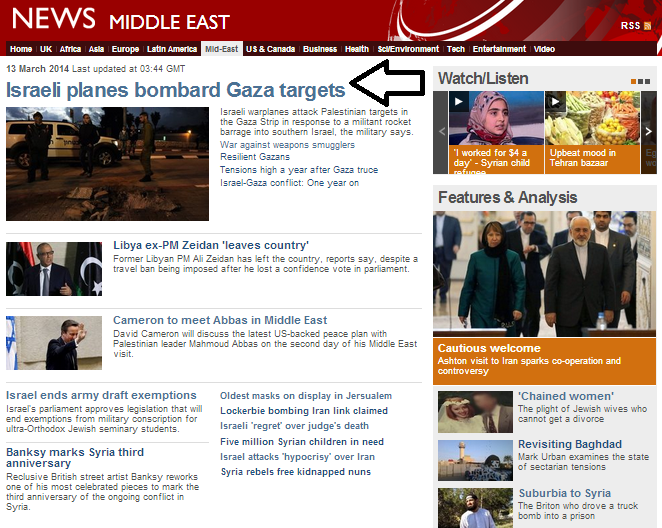Listeners to the afternoon edition of the BBC World Service radio programme ‘Newshour’ on March 3rd heard a report about the previous day’s election in Israel. Presenter Jon Donnison introduced the item (from 18:56 here) with promotion of the notion that the Likud party had secured a “victory”. [emphasis in italics in the original]
Donnison: “Now, to Israel and after a third election in less than a year, it looks like – according to partial results anyway – like the Houdini of Israeli politics, Benjamin Netanyahu, arguably the most successful and certainly the most durable politician of his generation, has just about pulled off another victory.”
Donnison’s reference to “another victory” misleads listeners by concealing the fact that in the election held in April 2019 Netanyahu’s party secured the same number of seats (35) as its main rival Blue & White and in the election held in September 2019, Blue & White secured 33 seats while the Likud party got 32.
Fortunately for BBC audiences around the world, Donnison brought in Anna Foster to report from Jerusalem and she put his claim into perspective.
Foster: “Now it’s not a victory just yet because those votes need to be counted, they need to be verified. So far this is all based on exit polls which show that his [Netanyahu’s] Right-wing block will have potentially 59 of the 61 seats that he needs to form a governing coalition in the Knesset. So he’s only part way there and there’ll be a lot of negotiations to be done in the next few days.”
Given that the BBC correspondent in Jerusalem obviously understood the picture accurately, one must ask why ‘Newshour’ producers allowed Donnison’s misleading introduction to pass.
Anna Foster went on to explain that:
Foster: “…if he [Netanyahu] does end up having 59 or potentially 60 seats, what he needs to do is bring across an MK from a different party. Now that is not as easy as it may sound to get somebody to cross the floor because there are penalties. If he manages to…to woo somebody across from Blue & White for example, that person would not be able to serve as a minister or deputy minister in the Knesset and when that particular Knesset session ends, they would not be able to stand again for any of the parties currently represented. So it makes Mr Netanyahu’s negotiating hand somewhat difficult. What can he offer them? There are places on committees potentially that might…that might tempt somebody across but anybody who does that is very much limiting their future political life so it’s not going to be an easy horse trade.”
That portrayal of the sanctions against individual MKs who cross the floor is largely accurate (in addition, they would not be permitted to form a new party) but it only tells part of the story. As explained by Dr Assaf Shapira at the IDI, two additional scenarios also exist.
“A number of the slates elected to the twenty-third Knesset are actually joint lists made up of a number of independent parties. If an independent party decides to split from its list after the elections it will not face any sanctions. For example, if the Gesher party, headed by Orly Levy, decides to leave the joint list of Labor-Meretz-Gesher it will not face any sanctions. Such a move would be treated as a party splitting (as opposed to individual defections). In fact, the newly independent group would then either become an independent faction – or it could join an existing list already in the Knesset. Parties that decide to split do not face sanctions.
An additional possibility is that one-third of the MKs elected to the Knesset on a particular list decide to break away. Such a move (that also must include a minimum of two MKs) will also be defined as a list that split into two independent factions and individual MKs who decided to defect.
In fact, the break-away MKs can either form new factions or join an existing one. And what about possible sanctions? They will be able to join the government and run in the next elections, but, if the split takes place in the first two years of the Knesset’s term, the new faction will not be eligible for public funding usually available to parties.”
Nevertheless, it was refreshing to see a BBC journalist in Jerusalem who clearly made an effort to understand the details of the story she is reporting and who provided audiences with fact-based pertinent information to enhance their understanding rather than promoting the usual jaded BBC narratives.





